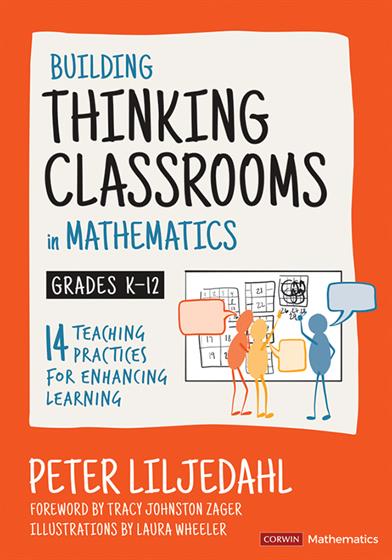Hands-on, Practical Guidance for Educators
From math,
literacy, science, equity, multilingual learners, and SEL, to assessment, school counseling,
and education leadership, our books are research-based and authored by experts
on topics most relevant to what educators are facing today.

Bestseller!
Building Thinking Classrooms in Mathematics, Grades K-12
14 Teaching Practices for Enhancing Learning
Building Thinking Classrooms in Mathematics, Grades K-12 helps teachers implement 14 optimal practices for thinking that create an ideal setting for deep mathematics learning to occur.
Product Details
- Grade Level: K-12
- ISBN: 9781544374833
- Published By: Corwin
- Series: Corwin Mathematics Series
- Year: 2020
- Page Count: 344
- Publication date: October 16, 2020
Review Copies
Review copies may be requested by individuals planning to purchase 10 or more copies for a team or considering a book for adoption in a higher ed course. Request review copy

